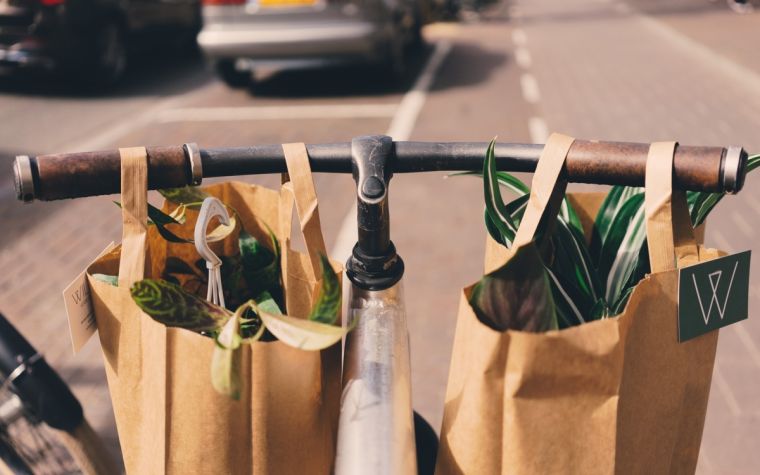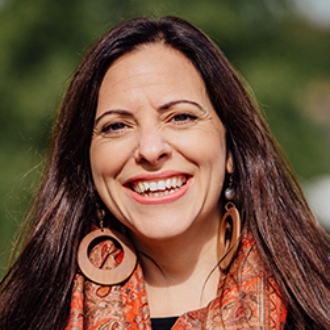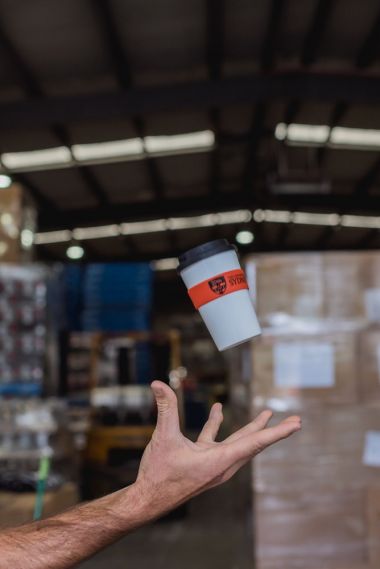A 'zero waste' lifestyle and the challenge to the church

Jo Herbert-James is on a mission or, should I say "on a journey" towards a God-honouring 'zero waste' lifestyle in a world where, at present, it seems like 99 per cent of what we buy is thrown away within six months.
As Tearfund's Theology and Networks Manager focused on Environmental and Economic Sustainability, and the Director of the Justice Conference UK, Jo is passionate about a holistic and practical approach to faith and a keen advocate of 'zero waste' lifestyles.
Jo spoke to Christian Today after leading a warmly received and well attended seminar at the YMCA's 175th anniversary celebrations at the ExCel Centre London last week.
CT: You talked about how we are living in "the best of times and the worst of times". What do you mean by that?
Jo: The statistics tell us that in the past forty to fifty years we have halved the number of people living in extreme poverty around the world, so reduced the number of people living on $1.25 a day or less, reduced people living without safe water, reduced the under five mortality rate and more. There are lots of good statistics to tell us we are heading in the right direction when it comes to extreme poverty.
Economic growth has lifted people out of poverty then, yet there's a flip side to this too. During that same period of time we have exponentially increased our greenhouse gas emissions to levels never known before. We have also roughly halved the amount of bio diversity worldwide. In other words, economic growth has come at a cost to the environment.
Now, lots of this was done in ignorance; initially we didn't know the level of impact development would have on the environment and particularly on those living in poverty. However, the place we now find ourselves in is that we are living in 'the best of times' because we see less poverty and 'the worst of times' because we are impacting the environment at a rate that is simply not sustainable.
CT: So how serious is the waste problem?
Jo: Tearfund has just published a report 'No time to waste' so let me highlight some key statistics. In the UK we throw away two double-decker busloads of plastic waste every 30 seconds. In the same 30 seconds, in developing countries 30 double-decker busloads of plastic waste is either burned or dumped. And in those same 30 seconds one person dies from diseases caused by mismanaged waste.

We found that two billion people worldwide are living and working in piles of waste because developing countries do not have the infrastructure to manage waste safely. This is exasperated by the increase in single use plastic in these countries, including due to multinationals who drive the increase of single use plastic.
In many developing countries, they call it 'the sachet economy' because people live with so little money they can only afford to buy small packets of what they need and so we end up with millions and millions of these little sachets and no way to dispose of them.
CT: The attendance at your seminar suggests young people are responding to your message. Am I right?
Jo: Yes. I think the world has woken up in the last couple of years and young people live with the realization that this is their future. They have a vested interest in this issue and have realized that the older generation has been too slow and they need to speak up. They really care. I don't know if we have all of the answers yet to deal with this crisis, yet we do have a lot of the answers and it will require both policy change and individual people engaging with the issue at the same time.
For example, my current role requires me to travel at times for Tearfund, so one of the things we do is to record all flights and offset them. We have done that for many, many years. But it also requires me to think about my wider lifestyle and carbon footprint too.
CT: So tell me a little more about how it influences your personal lifestyle.
Jo: I started living towards a zero waste lifestyle about five or six years ago. Really for me this is an expression of my faith. The more I've gone back to the Bible, I've understood that the Gospel is all about things being restored and reconciled to their right relationship (Col 1:20): our relationship being restored with God but also our relationship with other people, with ourselves and with the wider creation and that is a part of how God designed us, to be in harmony with and care for wider creation.
God created this world and loves it. He entrusted it to us to take care of it. That's our first command as people, to take care of His creation. So living towards zero waste is part of my worship, considering my consumption is a part of my response to God, the reconciler. And so I carry my coffee cup and my water bottle with me everywhere; for me they are symbols of my worship – the way I engage with the things around me.
In Romans 12 in the Message version it says "So here's what I want you to do, God helping you: Take your everyday, ordinary life—your sleeping, eating, going-to-work, and walking-around life—and place it before God as an offering."

It affects everything. To live a zero waste lifestyle you have to think about everything you consume. So whatever you buy, whatever you take into your life you're thinking about that item's end of life. How do I get rid of it afterwards? So you analyze what you eat, what you wear, what you are buying as treats or things you don't need, household products etc. I am always thinking what happens with it next, is it recyclable? Compostable? If it's going to go to landfill then I will try as hard as I can to find an alternative or not buy it at all.
CT: Can you imagine churches as zero waste communities?
Jo: Yes! Zero waste communities, big or small, are ones that send nothing or very little to landfill. And there are a number of them around and increasing numbers of communities working towards that. It really requires us to re-imagine our lives. That's the challenge. Albert Einstein said that "The true sign of intelligence is not knowledge but imagination."
It requires a community, a household, church or individual to reimagine life without waste and to not accept the world the way it is. Can a church imagine how they serve tea and coffee in a way that produces zero waste? It shouldn't take too much imagining! How we serve food without waste may take more imagination, so although it can be a challenge, it can also be turned into a community activity as we will certainly do it better together.
CT: If you could sum up your passion in one or two sentences what would you want to say?
Jo: God's mission is to restore a broken world to Himself, and He invites us to join in with Him and that invitation is to the whole mission of restoring relationship with Him, with others, ourselves and wider creation.
And that's how we will get to the shalom of God. As the church, particularly the evangelical church, we've had a blind spot around the environment for decades. However, the environmental emergency that is being declared makes it our moment and our opportunity to find our prophetic voice in this area, to reclaim our first commandment to care of God's creation and not to sit back and be schooled by the world in how to fulfil that.











